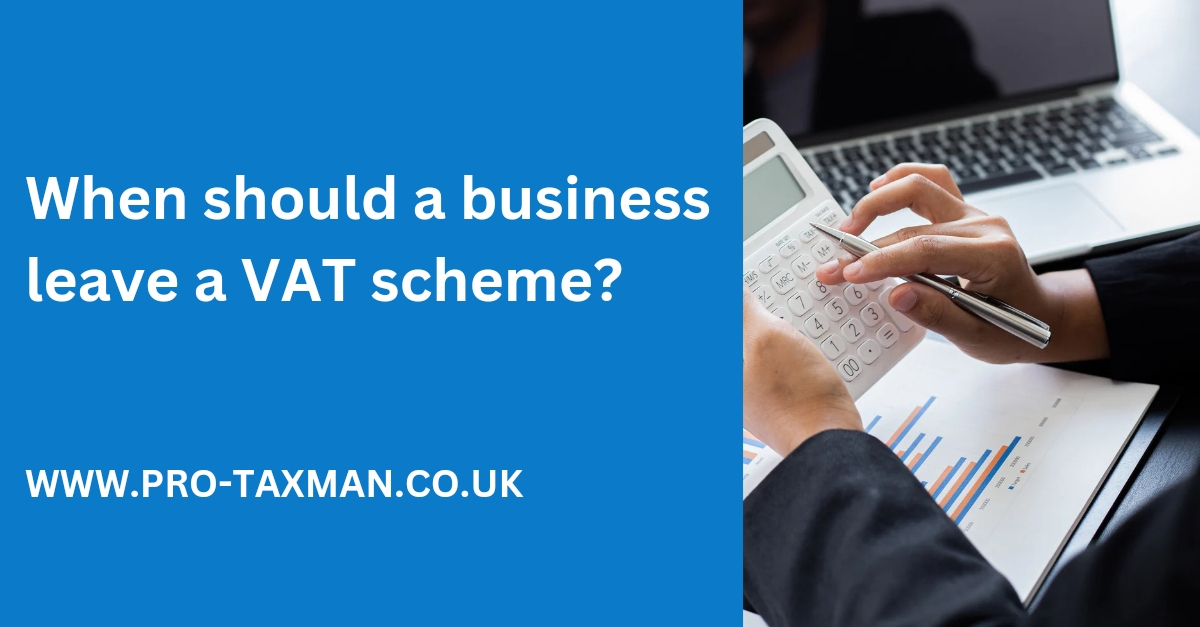Post-pandemic, many businesses are finding that their trading circumstances have changed such that the non-standard VAT scheme under which the business is registered is no longer appropriate. The turnover may have increased so they are no longer eligible.
VAT schemes are designed to simplify how some VAT-registered businesses calculate and account for VAT and are voluntary to join. By choosing the most suitable VAT scheme a business can have better control over its cash flow and sometimes be better off financially than when using the standard VAT scheme. However, care must be taken to avoid falling foul of the conditions required to use the scheme.
There are eight VAT schemes available, the main ones being the cash accounting scheme (CAS), the annual accounting scheme (AAS) and the flat rate scheme (FRS). A key point is that the leaving threshold is higher than the joining limit in each case. You can choose to leave the scheme at any time but you must leave if the business is no longer eligible.
Cash accounting scheme
Compared with the standard VAT scheme (where VAT is paid and claimed using the invoice date), VAT under the Cash Accounting Scheme (CAS) is paid on sales when the customer pays and reclaimed on purchases when the supplier is paid. A business using the CAS must leave at the end of any VAT period where the taxable sales for the previous twelve months have exceeded £1.6 million excluding VAT. However, a business can remain if it is believed that taxable sales in the next twelve months after going over the exit limit will not exceed the joining threshold, i.e. £1.35 million excluding VAT. If the business is paid promptly by its customers but takes time to pay its suppliers, then this scheme may not be worthwhile.
Annual accounting scheme
The main advantage of the Annual Accounting Scheme (AAS) is that only one return is submitted per year instead of four quarterly returns. Payments on account are made throughout the accounting year, based on the net liability of the previous year’s return. This scheme is useful for those businesses who want certainty in the amounts to pay every month and possibly have a static monthly turnover. The disadvantage is that overpayments can arise as, even if turnover is lower in the current year, payments will remain at the same rate as for the previous year. As any overpayment is not claimable until the end of the year, the scheme may not be beneficial for seasonal businesses. The conditions for remaining within the scheme are the same as for the CAS.
Flat rate scheme
This scheme removes the need to record the VAT element on sales and purchases separately. Businesses apply a fixed percentage to the gross turnover to arrive at the amount to pay, with the percentages varying depending on the business sector. The Flat Rate Scheme (FRS) is only available to businesses with a turnover of less than £150,000 (excluding VAT). However, once a business is within the scheme, it can remain even if turnover rises above £150,000, as long as it does not exceed £230,000 (at which point the business must leave). The disadvantage of FRS is that should the VAT claimable on purchases exceed the VAT charged, a refund would be due under the standard VAT scheme but under the FRS a payment would be made.
Care needs to be taken when operating the FRS as a flat rate percentage of 16.5% applies in place of the business-specific percentage to any business which meets the definition of a ‘limited cost business’. This is a business which spends less than 2% of its VAT-inclusive turnover on ‘relevant goods’ or more than 2% of its turnover but less than £1,000 a year on such goods. ‘Relevant goods’ are goods used exclusively for business purposes e.g. stationery and other office supplies.
FRS requires a fixed percentage to be applied to gross sales without considering zero-rated or exempt sales. Therefore, a business such as a builder who works on zero-rated new builds should not use the FRS as no VAT is charged on sales.
Need professional accounting service or accounting advice? Contact us to book a 15-min Free Consultation with us today.
To find out more please follow us on Facebook, Twitter, or LinkedIn. Feel free to contact us on 0333 006 4847 or request a call back by texting 075 6464 7474

